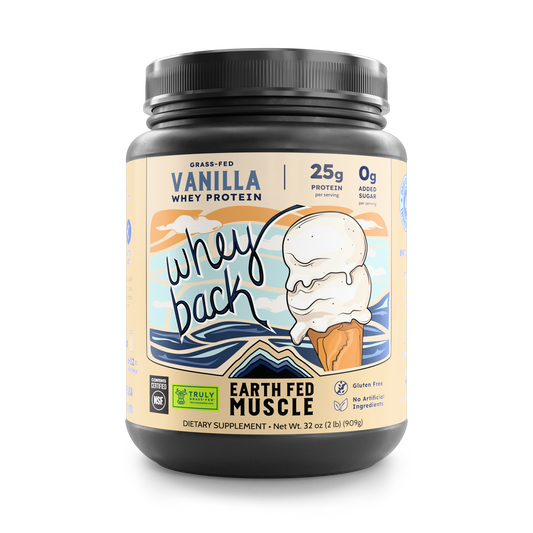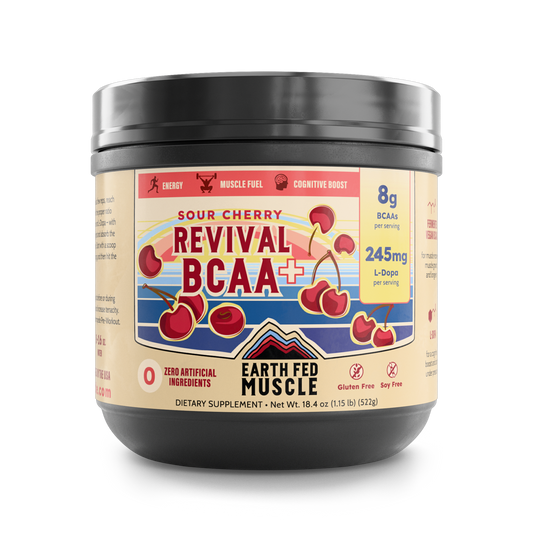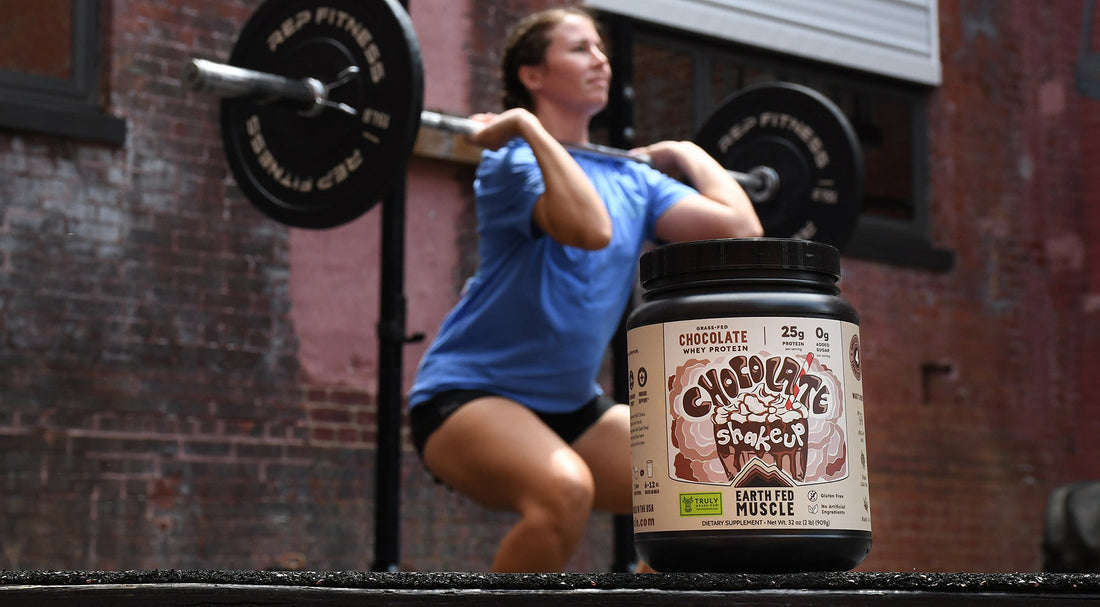Summary:
Whey protein is a staple sports supplement in anyone’s nutrition, whether you’re a world class athlete or an individual living an active lifestyle. Whey protein is one of the best types of protein to improve lean muscle mass and speed up recovery time of muscles after a hard workout. Abundant in important essential amino acids, whey protein has the ability to improve overall performance while building muscle and improving muscle recovery.
When it comes to protein, it’s extremely important to check labels. After all, not all protein is created equal.
Whey protein is one of the most beneficial types of proteins to include in your diet -- especially for athletes, bodybuilders or individuals leading a highly active lifestyle.
Whey protein is abundant in amino acids and other key nutrients. But what is whey protein, exactly?
In this article you’ll learn:
- What is whey protein?
- What are the benefits of whey protein?
- What are the benefits of leucine?
- How does whey protein benefit recovery?
What is Whey Protein?
As you may know, whey protein comes from cow’s milk. Milk contains two types of protein: casein (80 percent) and whey (20 percent). Whey is technically made from the liquid remaining from the conversion of milk to cheese.
If you’ve ever opened a yogurt to find that layer of liquid at the top, that’s whey.
There are three types of whey -- concentrate, isolate and native whey. The main difference between them is that whey concentrate and whey isolate are manufactured after cheese coagulation. Whey isolate has more protein and less fat (or lactose, rather) than whey concentrate.
While both regular and native whey are byproducts of the cheese making process, native whey is not, providing a higher amount of amino acids. But how?
Well, the cheese-making process involves treating cows milk with acid which separates the solid proteins from its liquid proteins (whey).
However, native whey skips this process. Instead, it’s dried at cold temperatures, keeping it “undenatured.” Then the raw milk is filtered to provide a clean source of protein (native whey).
Whey Back Vanilla Grass-Fed Whey Protein
$64.99

The Benefits of Whey
Whey is particularly effective at stimulating growth. This is one of the reasons why it’s so popular among athletes, bodybuilders and active individuals looking to build muscle and recover properly.
It stimulates growth by:
- Providing protein and amino acids
- Increasing the release of anabolic hormones (such as insulin) (1)
- It's absorbed much quicker in comparison to other proteins (2)
Countless numbers of research articles have been published showing just how important whey can be in order to increase muscle protein synthesis, strength, power and recovery from hard training. (3)
In fact, the Journal of Science and Medicine found that female athletes who consumed whey protein post-workout had an increase in performance markers (which included vertical jumping, agility, running and muscle endurance). (4)
Why is Whey Beneficial for Recovery?
Whey is made up of amino acids, the “building blocks” of protein. While your body can produce some of these building blocks, it’s important that you obtain others through your diet.
The amino acids you need to get from the foods you eat are called “essential amino acids”. While there are a total of 20 amino acids, only nine of them are considered essential.
These nine essential amino acids include:
- Histadine
- Isoleucine
- Leucine
- Lysine
- Methionine
- Phenylalanine
- Threonine
- Tryptophan
- Valine
Some of these amino acids are considered branched chain amino acids (BCAA’s), which help enhance energy production and muscle synthesis during exercise. (7) Luckily, whey is abundant in all of these essential amino acids, which makes it a complete protein (a protein with all nine essential amino acids).
When it comes to amino acids, three stand above the rest -- leucine, isoleucine and valine.
Leucine
One amino acid in particular, leucine, is the most anabolic. This means it’s extremely effective at promoting growth. Leucine is broken down and absorbed more rapidly than most other BCAA’s (branched chain amino acids).
In fact, it’s considered the best BCAA for muscle building. Some of its key benefits include:
- Builds muscle
- Improves muscle recovery
- Prevents loss of muscle
- Manages blood sugar
- Improves overall performance
While we know whey protein is abundant in this amino acid (Earth Fed Muscle contains around 2.711 grams per serving), we can’t forget that whole milk provides a decent amount as well -- about 0.647 grams per 1 cup.
Since leucine can be found in rather abundant amounts in both milk protein and whey protein, it's no wonder you see an increased benefit from drinking your whey protein with milk vs. water (not to mention it tends to taste better, too).
All the gains, bro.
BCAA+ Revival Sour Cherry Intra-Sport
$44.99

How Whey Protein Aids in Recovery
By containing all nine essential amino acids, it’s no wonder whey protein can be extremely beneficial in building muscle, increasing performance and improving recovery time. There is plenty of research to back this up.
One study in particular compared the effects of soy protein vs. whey protein in muscle protein synthesis. The results showed that while calorie consumption and protein grams were about the same, daily supplementation with whey was more effective than soy protein or carb control in promoting gains in lean muscle mass. This study also demonstrated that fasting leucine levels were elevated by about 20 percent. (5)
Another study examined the short term recovery effects of whey. The researchers took a group of 12 men and gave them either a whey supplement or carb supplement before a lifting session. They then measured muscle strength and recovery at 12 and 24 hours post workout. As it turns out, the group supplementing with whey recovered faster and stronger in comparison to the carb group. (6)
Bottom Line
By now we know that whey is full of BCAA’s, making it a great protein source for muscle synthesis. These factors (among other benefits) makes it a great addition to anyone’s diet, but especially athlete’s and other active individuals to help improve protein synthesis, performance and overall recovery.
Sources
(1) https://www.ncbi.nlm.nih.gov/pubmed/22647249
(2) https://www.ncbi.nlm.nih.gov/pubmed/9405716
(3) https://www.ncbi.nlm.nih.gov/pubmed/24015719
(4) https://www.ncbi.nlm.nih.gov/pmc/articles/PMC3761774/
(5) https://www.ncbi.nlm.nih.gov/pubmed/24015719
